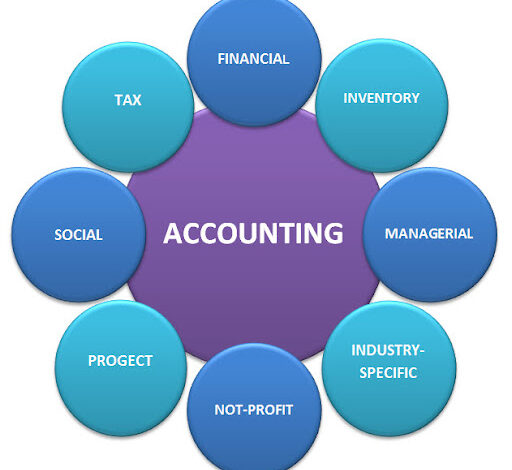WHAT ARE THE TYPES OF ACCOUNTING?

Accounting is the method of keeping record of all the transactions including income, expenditure, taxation, profit, loss etc. It is basically, keeping a track of all the financial activities of a firm. It is designed to assess the financial health of the firm. Such track of financial activities allows the individuals to adopt suitable practices. It is one of the global best practices adopted by multinational firms. There are eight different types attributed to accounting based on the approach. All these types of accounting are briefly discussed in this article.
- Auditing
Auditing is the independent assessment of all the financial and accounting records of a firm. It allows unbiased evaluation of the company activities. It involves checking all the transactions, formal and informal withdrawals, tax compliance in the company and the sources of incoming capital. Auditing also helps in rectifying the incorrect methods being practiced if any.
- Tax accounting:
Tax accounting is basically concerned with the taxation management of a firm. It is the collection and processing of data from the tax compliance perspective only. It does deal with other departments linked to accounting. It follows a set of rules and guidelines that are solely designed for tax management by the firm. Generally the objective behind tax accounting is to optimize profits by tax adjustment.
- Managerial accounting:
Managerial accounting primarily deals with the procurement, processing and dissemination of accounting information for the managerial purposes. The managerial purposes solely include management of firm activities, optimization of allotted funds for the ongoing projects, management of current resources and other things like that. Basically it is optimization of work in accordance with the available accounting information.
- Fiduciary accounting:
Fiduciary accounting is associated with keeping authentic records related to all the financial activities of a firm. It records the procurement details, along with the details of fund dissemination, over a period of time. The fiduciary accounting produces periodic reports on the overall financial functioning of the firm.
- Cost accounting:
Cost accounting basically deals with analysis of cost of production. It examines the efficacy of production factors at all the stages. Such analysis helps to assess the marginal efficiency of each factor employed for production, as well as the marginal cost of production. The primary objective of cost accounting is to minimize the cost of productions and maximize profits by doing so.
- Financial accounting:
Financial accounting is the overall analysis of financial operations of a firm. It produces a report on the financial functioning of the firm by collection of significant data, its organisation and presentation with meaningful conclusions. Financial accounting is not bound by the barriers of different segments within the firm. It is a boundless accounting of all operations, irrespective of production, procurement, sales or whatever the case be.
- Forensic accounting:
Forensic accounting is associated with the problematic side of financial functioning. It is designed to look into the loopholes in financial transactions, like lost or misplaced money. It also examines the possible factors responsible for such mismanagement. It is a very interesting branch of accounting and completely stands out from the conventional accounting strata.
- Government accounting:
Government accounting is a branch of accounting that deals with the analysis of government transactions. It examines all the transactions and financial operations of the government bodies. It involves all the conventional methods generally associated with accounting; the only distinction between government accounting and other streams of accounting is the objective of accounting. Government accounting holds the government accountable to people, while conventional accounting is based on managerial objectives.
BENEFITS OF ACCOUNTING
There are reasons why accounting is such a widespread practice and has its base among masses. It offers services in diverse fields and is a measure of accountability. It compels the stakeholders in the firms to function accountably. Accounting also enables optimization of resources and task forces available with the firm. It is due to these reasons that accounting has become a common practice and offers great career opportunities. The specialised techniques in accounting help in optimistic maintenance of financial records. These are some points that sum up the benefits of accounting in brief:
- Taxation management
- Concluding financial statements
- Record keeping
- Planning
- Supplementing legal procedures
- Discovering aggregate position of firm
CONCLUSION
Accounting is a fundamental practice in every other business firm. It is elemental in running business operations on the right track. All the procedures from keeping track of transactions to accounting profits, dividends etc, are accommodated within accounting operations. For performing such accounting operations, individuals are required to possess basic knowledge about statistics, finance and economics along with intermediate level math skills. This knowledge is vital for dealing with dynamic aspects of accounting and executing accounting tasks with greater precision. After going through the above the article one must be able to recall the primary types of accounting and their respective extents.



